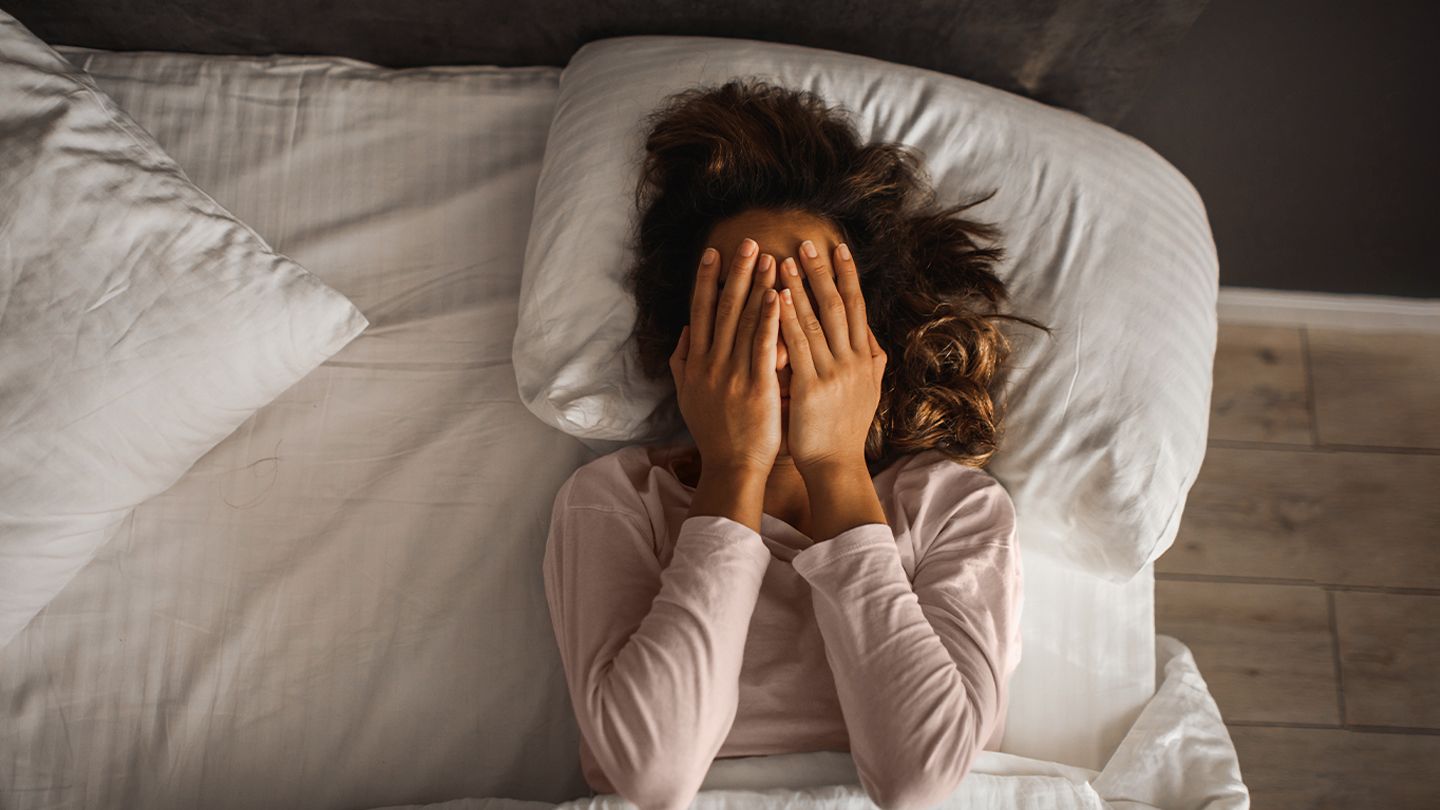
The Connection Between Magnesium and Night Terrors
Night terrors, also known as sleep terrors, are episodes of screaming, intense fear and flailing while still asleep. They most often occur in children between the ages of 3 and 12 years old. Night terrors are different from nightmares in that the person experiencing them can rarely recall what they were dreaming about. Night terrors can be alarming for parents to witness, but typically aren't cause for concern. Most kids outgrow them by their teenage years.
While the exact causes of night terrors aren't fully understood, magnesium levels may play a role. Magnesium is a mineral that helps regulate muscle and nerve function, blood sugar levels, and blood pressure. It also helps maintain normal sleep cycles. Some research indicates that a magnesium deficiency could contribute to night terrors and other parasomnia disorders like sleepwalking, teeth grinding and bedwetting in children.
Magnesium's Role in Sleep
Magnesium has a calming effect on the nervous system. It appears to help regulate the release of neurotransmitters like serotonin that aid sleep and relaxation. Magnesium also enables you to achieve deeper levels of REM (rapid eye movement) sleep when dreams occur. REM sleep is the stage of sleep most disrupted by night terrors.
A lack of magnesium may make it more difficult to transition smoothly between sleep cycles. This could trigger abrupt awakenings or arousal from sleep that manifests as terrors. Getting sufficient magnesium may help normalize sleep architecture and prevent the confused state between being asleep and awake that contributes to night terrors.
Magnesium Deficiency
While a serious magnesium deficiency is rare, many Americans get less than the recommended daily amounts from their diet. Adults need 310-420 mg per day depending on age and gender. Children require 80-240 mg depending on their age and size.
Factors that increase the risk of mild magnesium insufficiency include:
- Poor dietary intake - not eating enough magnesium-rich foods like nuts, seeds, whole grains, beans, leafy greens, milk and yogurt.
- Digestive issues - diseases like celiac and Crohn's disease can impair magnesium absorption.
- Alcohol consumption - alcohol increases magnesium excretion through urine.
- Diabetes and insulin resistance - higher magnesium excretion associated with high blood sugar.
- Hyperthyroidism - overactive thyroid leads to excessive magnesium loss.
- Vitamin D deficiency - vitamin D helps regulate magnesium homeostasis.
- Diuretic medications - frequently prescribed blood pressure meds cause more magnesium to be lost through urine.
- Strenuous exercise - significant sweating causes greater magnesium loss.
Children who don't get enough magnesium from a balanced diet may be at higher risk of deficiency. Picky eating patterns and consumption of highly processed foods can contribute. Studies show most children don't get adequate magnesium from their usual diet.
Research on Magnesium and Night Terrors
While experts theorize that magnesium deficiency could contribute to parasomnia disorders like night terrors, concrete evidence from clinical research is limited. Small studies provide some indications that magnesium may help.
A study in the journal Neuropsychiatric Disease and Treatment evaluated 38 children with sleep terrors, 32 of whom also experienced other parasomnias like sleepwalking and bruxism (teeth grinding). The children were given a daily magnesium supplement for one month. At the end of the month, 36 of the children showed complete remission of night terrors. The other 2 children had reductions in frequency and severity of episodes.
Another study published in the Journal of Research in Medical Sciences gave a magnesium supplement or placebo to 46 children with sleep disorders for one month. The magnesium group had significant decreases in frequency of night terrors, sleep talking, teeth grinding and bedwetting episodes compared to the placebo group. The study authors concluded that magnesium supplementation may be an effective, safe treatment for sleep issues in children.
The research is limited, but the findings suggest supplemental magnesium may hold promise for addressing night terrors. More extensive clinical studies are still needed though. It's unclear what dosage may be ideal or how long treatment should continue to maintain results. Safety and effects with long-term use need further evaluation as well.
Other Minerals for Night Terrors
Aside from magnesium, deficiencies in other minerals could potentially contribute to night terrors in some kids. These include:
- Iron - vital for oxygen delivery. Low iron reduces sleep quality and is linked to restless legs syndrome.
- Zinc - needed for melatonin synthesis. Zinc deficiency may disrupt sleep.
- Calcium - helps the brain use tryptophan to manufacture melatonin for sleep-wake cycles.
- Potassium - low levels associated with muscle cramps and pains that may disturb sleep.
Ensuring children get adequate amounts of these minerals from their diet or supplements may help minimize night terrors in some cases. However, research indicates magnesium has the strongest relationship with parasomnia disorders.
Natural Remedies for Night Terrors
While magnesium shows promise for addressing night terrors and other common sleep disorders, parents can also try other safe and natural remedies at home. These include:
Ensure Good Sleep Hygiene
Aim for your child to get enough quality, uninterrupted sleep on a regular schedule. Put them to bed at a consistent time each night. Keep lights dim and avoid screen time for 1-2 hours before bedtime. Make sure their bedroom is cool, quiet and comfortable for sleeping.
Reduce Stress
Look for any sources of emotional stress or anxiety that could be disturbing sleep. Try to minimize stressful situations around bedtime with a calming pre-bedtime routine. Incorporate relaxing activities like reading stories, taking a warm bath, listening to soft music, or trying deep breathing exercises and visualization.
Check for Sleep Disorders
Discuss night terrors and any snoring or breathing problems during sleep with your child's pediatrician. An evaluation may be recommended to check for underlying sleep disorders like sleep apnea that could contribute to arousals from deep sleep.
Use Essential Oils
Certain essential oils like lavender, chamomile and vetiver have calming properties. Sprinkling drops of soothing oils onto bedding, using a diffuser in the bedroom, or diluted oil massage before bed may encourage more peaceful sleep.
Try Calming Herbal Tea
Give your child a cup of relaxing herbal tea like chamomile, passionflower or valerian a little before bedtime. Consult your pediatrician first about dosage and safety.
Play Soothing Music
Try playing tranquil classical or nature sounds music on a loop by their bedside throughout the night. Repeating melodies may help children stay relaxed and not wake fully during a night terror event.
When to Seek Medical Advice
While occasional night terrors are usually not a major concern, contact your pediatrician if:
- Terrors occur frequently - several times a week.
- Terrors result in injury or put your child in danger.
- Your child seems distressed or fears going to bed.
- Terrors don't start to decrease after age 10.
- You notice other worrisome sleep behaviors or snoring.
- Your child has daytime behavior or performance issues suggestive of poor sleep.
The doctor can evaluate for any underlying conditions that may be contributing to sleep disruptions or impaired sleep quality. They can also refer to a sleep specialist for further assessment if needed.
When to Consider Medication
Medications are not usually recommended for routine night terrors. However, if episodes are frequent and causing major distress or safety risks, medicines may help in some cases. These may include:
- Benzodiazepines - anti-anxiety drugs like clonazepam could help prevent awakenings, but have side effects like sedation the next day.
- Alpha agonists - medications like guanfacine used for ADHD that may help stabilize sleep.
- Antidepressants - tricyclics or SSRIs may be tried if anxiety is contributing, but have limited evidence for effectiveness.
- Melatonin - this natural sleep hormone shows some promise for reducing night terrors, especially in children with autism spectrum disorders.
Always discuss risks, benefits and expectations thoroughly with your child's doctor before considering sleep medications. Non-drug approaches should typically be tried first. Any underlying causes or exacerbating factors should also be addressed.
Outlook for Night Terrors
While frequent night terrors in children can be disruptive for the household and concerning for parents, in most cases they are not indicative of any serious problem. Having a consistent pre-bedtime routine, ensuring proper sleep habits, and making the bedroom environment calming and conducive to sleep can often help reduce episodes.
Magnesium supplementation shows potential for lessening night terrors in children, but more extensive clinical research is still needed. Parents should consult their pediatrician before giving any new supplements. Monitoring magnesium intake through diet and addressing any mineral deficiencies may also be beneficial.
Children usually outgrow night terrors by their teenage years. But if they persist, worsen, or contribute to daytime difficulties, be sure to seek medical advice. With patience and the right mix of lifestyle adjustments and natural remedies, most families eventually find a way to manage periodic night terrors and regain peaceful nights.
FAQs
What are night terrors?
Night terrors are episodes of intense fear during sleep, often accompanied by screaming, crying, thrashing, sweating, fast breathing and heart rate. They usually occur in the first few hours of sleep and are more common in young children.
How are night terrors different from nightmares?
Nightmares occur during REM sleep and often involve vivid dream content that the person can recall upon waking. Night terrors happen during deep non-REM sleep, and children usually can't remember what happened when they wake up.
What causes night terrors?
The exact cause is unknown but may involve genetics, sleep deprivation, sleep disorders, stress, fever, or magnesium deficiency. Most children outgrow them by the teen years.
Can magnesium help night terrors?
Some research indicates magnesium supplements may help reduce night terror frequency and severity, likely by supporting normal sleep cycles. But more extensive studies are still needed.
What are other remedies for night terrors?
Good sleep habits, a relaxing pre-bed routine, essential oils, herbal tea, soothing music, and ruling out any underlying sleep disorders may help lessen night terrors without medication.

